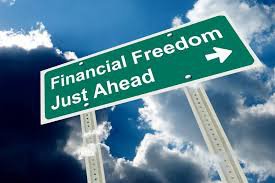Introduction
The 21-Day Financial Fast is a sort of money diet that promises to break bad spending habits, create a plan to become debt free, and set yourself on a better financial course for the future. While on a financial fast, you can’t spend any unnecessary money – at all. Unless it’s food, shelter, or something else essential to survival, you’re committing to making do with what you already have. While the financial fast is only meant to be followed for a short stint, its goal is to help you break some of your worst spending habits in the long-term.
This is a time of "Prayer and Fasting,'' so we will also engage in corporate devotion and prayer LIVE every day at 9:00 am (ET) on the church's Facebook page FB.com/EmpoweredLivingChurch.
 Highlight big takeaway #1 here
Highlight big takeaway #1 hereThe Rules
The rules are challenging, but they’re straightforward. Here’s what you have to do when you commit to a financial fast:
- Make It Last for 21 Days. Three weeks is a perfectly reasonable period of time to cut back on your wants and focus only on your needs. If you commit for less time, you may not really absorb the benefits of a fast and the trans-formative effects it can have on your financial habits.
- Only Purchase Needs. Unless you absolutely need it to survive, don’t buy it during your fast. That eliminates trips to the hair salon, happy hour at the bar, restaurant dinners, movies, online purchases, and even birthday presents for your best friends. Instead, your money should only go toward food, housing, medication, and other necessities.
- Pay With Cash Only. You become much more conscious of the spending process when you actually pay in cash. Those bills can serve as a potent visual reminder of the decisions you’re making, as you make them. When the cash stays in your wallet, you’re going to feel a lot better about your self-restraint.
- Keep a Spending Journal. Throughout your financial fast, keep a detailed log of what you spend, what you save, and where you may be struggling. You can refer to this journal when you’re all done to help identify spending triggers and habits you’d like to change.
Advantages
- Become More Conscious of Your Spending Habits. If you stop for a cup of coffee in the morning, a snack in the afternoon, and a soda in the evening when you gas up your car, you may be spending $20 per day without even realizing it. A financial fast slows down your spending and helps you become more conscious of when and what you spend.
- Get on Top of Your Current Finances. Limiting your spending for 21 days won’t be a financial game-changer. However, it can help you save a little money, which can be a great motivation going forward. Seeing how painless it is to hold onto $15 or $20 per day simply by being more conscious of your decisions can give you the drive to chart a pay-down plan for your debts or reach a host of savings goals.
- Reduce What You Put on Credit Cards. Too often, when you don’t have enough money to buy something, you put it on a credit card. A fast can save you a lot of debt during the three-week period, and it can have a huge long-term effect if you learn to restrain yourself after the fast is complete.
- Reduce Temptation. When it comes to weight loss, one of the first rules is to remove temptation as best you can – sugary treats and foods high in saturated fats have no place in your home. A financial fast has the same effect on your wallet that the diet has on your waistline. If you don’t allow yourself to go to the mall or log onto Amazon, you won’t be tempted to overspend.
Tips for a Financial Fast
- Delineate Between Needs and Wants. Your personal definitions of needs and wants are going to be different from other people’s. For example, while I consider a trip to the salon a want, some women might feel that it contributes to their professional image and therefore qualifies as a need. Before you begin your fast, write down your wants and needs as you understand them. Knowing ahead of time can help take some of the temptation away – if you’ve already decided eating out is a want, it’s easier to decline an invitation from your friends.
- Get Accountable. Not everyone understands the purpose behind a financial fast, so you might find that some of your friends and family scoff at your experiment. Still, it’s important to be accountable for your spending, so be sure to find a support group or friend you can rely on during your fast.If you can’t find anyone to be accountable to, give a tried and true technique used for losing weight a shot: write it down. Keep a running tally of what you’ve purchased so you can see the items and prices in print – that way you’re less likely to try and cheat yourself.
- Remove Temptation. Are you an online shopping junkie? Limit your time on the computer. Do you always end up spending when you’re at the mall? Skip the window shopping. By thinking about some of your worst spending triggers and habits, you can work to curtail them. Remember that it’s only 21 days – you don’t need to avoid the mall forever, just until your fast is over.
- Make Do With Remixing. One of the best things a financial fast does is force me to look at my wardrobe differently. Without the option to buy something new, I have to use my closet in more creative ways. Use what you have and come up with cost-free solutions to any problems you’d usually just solve by spending. If you get a case of the munchies every day at 2pm, skip the vending machine and bring something from home. If you love to spend money on movies and other entertainment, watch TV or dig out your DVD collection for movie night. Think outside the immediate pleasure of a purchase and aim for free solutions, making use of what you already have.
- Celebrate Your Success. Once you finish your 21-day stint, celebrate the achievement. Don’t spend a ton of money, of course – instead, treat yourself to a modest gift and mark your accomplishment by depositing the bulk of your savings in an interest-bearing account, or use it to pay off debts. The true celebration of the fast is in taking advantage of its benefits.
Final Word
A financial fast can sound extreme, but it’s surprisingly doable. Armed with some prep work, an understanding of the rules, and some guidelines that you set for yourself, it’s possible to go cold turkey for three weeks and see seriously amazing results. It’s not a cure-all solution for out-of-control spending, but it’s a step in the right direction – and one that can set you on a path toward better financial responsibility and prosperity.
 Highlight big takeaway #2 here
Highlight big takeaway #2 herePurchase Books
We suggest purchasing the book The 21-Day Financial Fast: Your Path to Financial Peace and Freedom by Michelle Singletary. The book can be purchased on Kindle for $3.99 and in paperback for less than $11.00 on Amazon, Thriftbooks, Barnes & Noble, and anywhere books are sold.


